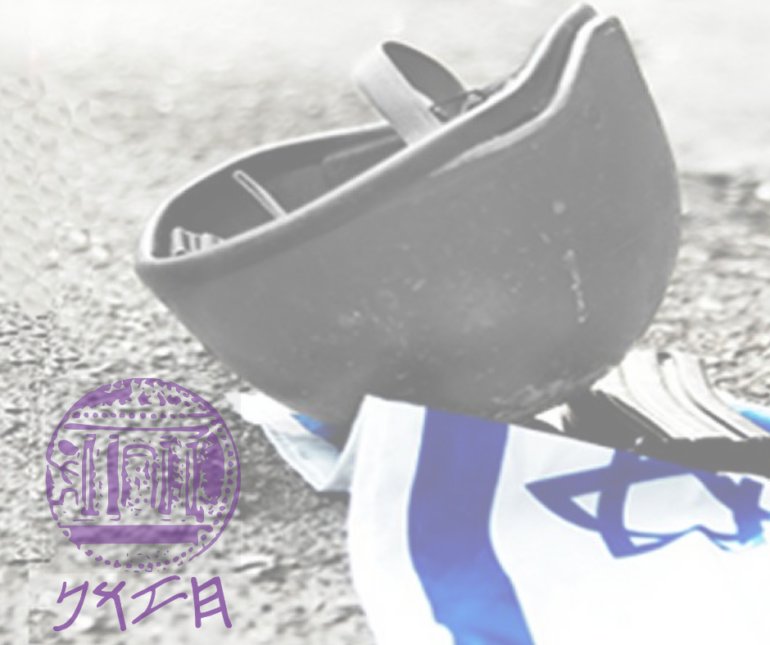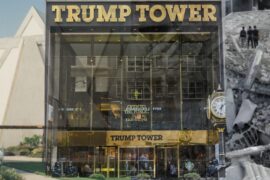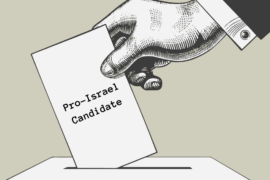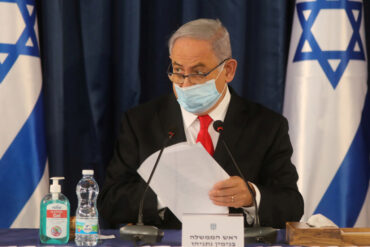In recent years, there has been an attempt by certain groups to transform Yom HaZikaron into a shared day of remembrance for Israelis and Palestinians to mourn the victims on both sides of our conflict.
While the notion of a shared Israeli-Palestinian memorial day might have some appeal, a deep analysis of what Yom HaZikaron truly means for the Jewish people is crucial when examining such an idea.
Most Israelis understandably view attempts to include Palestinians in Yom HaZikaron memorial ceremonies as deeply offensive because the narrative through which most Israelis currently experience reality casts Palestinians as the collective enemy largely responsible for many of the Jewish deaths being mourned on the day.
The term “narrative” in this case refers to a version of reality – a story told about a chain of events that organizes facts while being influenced by ideology. The same chain of events can be organized into many narratives, especially if influenced by different ideologies.
The separate narratives in which Israelis and Palestinians live very much inform how we relate to ourselves, to each other and to the history of this country. Expanding Yom HaZikaron to include victims on both sides directly challenges the mainstream Zionist narrative and feels to most Israelis as an affront to the memories of those lost.
Palestinians, of course, have their own narrative that informs the way they experience this conflict. It casts Israelis as their story’s antagonists, primarily responsible for the injustices and suffering they’ve endured over the last hundred years.
Those Palestinians who have reached a point where they can even consider participating in a joint memorial service for both peoples have already taken a courageous step by transcending their people’s narrow narrative to the extent that they can make the necessary space for moving forward together with us. But by refusing to even entertain the idea of sharing the day, the vast majority of Israelis send a message that Palestinians can never truly become part of our society.
The surest way for Israelis and Palestinians to end this conflict would be to create a larger narrative that’s inclusive enough to encompass both ostensibly rival narratives. We must become co-protagonists in the same story with a shared struggle. And it seems a shared memorial day for the thousands of victims on both sides would go a long way in facilitating the construction of such a narrative as it would help each people to recognize that we’re both victims of a situation that isn’t exclusively one side’s fault.
A shared memorial day for Jews and Palestinians to mourn our dead could theoretically go a long way in contributing to a healthier relationship dynamic. Such a day would help us to see that both peoples experience deep pain from this conflict. It would help us to stop seeing one another as merely the antagonists of our own stories and start recognizing that we are actually both victims of the same brutal conflict that allows outsiders to benefit from the violence we inflict on one another.
Such a day would go a long way in healing the hatred and mutual mistrust. It would show each other and ourselves that although we can never forget, we can forgive and move forward.
But that day can’t be Yom HaZikaron.
Yom HaZikaron is about something unique to the Jewish experience. It’s about commemorating the fact that after many centuries living as defenseless victims, a spirit of valor reemerged within our people — an ancient warrior spirit so central to our identity but for the most part lost to us thousands of years ago following the destruction of our national framework.
Without downplaying any other group’s pain, it’s unlikely that outsiders can fully appreciate the importance of this day to the Jewish experience of being constantly persecuted, abused and even massacred in the exile while carrying a faint memory of a time long before, in which we were a people known as much for our sword as for our Book.
A proud ancient people had been beaten, broken and scattered throughout the globe. We experienced so much trauma in a Diaspora experience that conditioned many of us to become psychologically incapable of defense. A more Hebrew way of explaining this might be that we lost our collective “right hand” — exactly what our ancient leader David warned us would result from forgetting Jerusalem and our identity. We’d lose our natural ability to use force when appropriate.
But as we started to remember Jerusalem and began to return home, our ancient spirit of valor resurfaced. We remembered Jerusalem and suddenly remembered our right hands. We reconnected to our ability to love something enough that we’d be ready to fight and sacrifice our lives on its behalf.
This is the essence of Yom HaZikaron and this is why Jews can’t share the day with anyone else. The experience that contextualizes the day and gives it meaning is unique to the Jewish people, to our history and our identity. The more we consciously acknowledge this truth, the more honest we can be — both with ourselves and with our Palestinian neighbors.
The confusion clouding this stems from the fact that Israel’s media has in recent years transformed the day into one of weakness and defeatism, largely through focusing on the personal pain of those who’ve lost loved ones (this shift of focus from appreciating how far the Jewish collective has advanced to the pain of fragmented personal loss is in and of itself a feature of westernization). The hard truth is that Israel already altered the meaning of Yom HaZikaron when we added terror victims to the fallen soldiers we remember on this day.
Yom HaZikaron is not merely a day to solemnly remember fallen loved ones. It’s a day to stand in awe of the selfless heroism demonstrated by so many fighters who made a conscious decision to give their lives for the national rebirth and freedom of Israel. It’s a day of deep appreciation for the fact that after so many generations of vulnerability and cowardice in exile (our Torah even defines cowardice as a primary feature/curse of exile), the Creator has infused a spirit of valor into our people and given us giant courageous souls willing to sacrifice personal safety and even life in order to take responsibility for our collective future.
This is the miracle that cuts through the sadness of the day and builds our emuna and appreciation for how far we’ve come.
The relatively recent addition of terror victims to those martyrs we remember on Yom HaZikaron has been part of the trend of blurring and diluting the day’s true meaning. Although there’s much pain associated with the date for many Israelis – especially considering the fact that almost everyone knows someone who fell in defense of the country – the feelings we should primarily experience on this day are awe and gratitude.
As much as we feel the pain of those lost through acts of terror and as much as we recognize that on some level they were killed as Jews due to a conflict that dominates this chapter of our people’s story, we must also recognize a difference between the passive victim who was in the wrong place at the wrong time and the active fighter who made a conscious decision to risk his life for something greater than himself.
There are levels of martyrdom and lumping terror victims together with fallen soldiers blurs the distinction between those levels and transforms everyone into a victim. It shifts the national focus of the day from the awe we’re meant to feel at the self-sacrifice demonstrated by our heroes to the personal pain of those who’ve suffered loss.
And if we’re already diluting the day by expanding its meaning to include all those we’ve lost in the conflict, why not include Palestinian victims as well?
We should certainly be seeking to grow past our one-sided narratives and offer Palestinians genuine inclusion in our society. It’s become increasingly clear that we’re not going to divide this land so it’s crucial we initiate real discussions about how we can live together in a single state between the river and the sea.
The answer for this specific issue might simply be to establish a new memorial day to remember Israeli and Palestinian victims of the conflict while restoring Yom HaZikaron to what it once was — a day to honor those Hebrew fighters who willingly gave their lives in the struggles to free our country from England, Jordan, Egypt and Syria, as well as those who fell fighting in the wars to defend our people and homeland.
Once again emphasizing this spirit of valor and contrasting it with our experience as helpless victims in exile would better clarify and highlight the uniqueness of the day while creating the necessary space to establish a separate day for Jews and Palestinians to mourn our victims together — a day for commemorating painful loss on both sides that could help build a shared narrative inclusive enough to encompass both ostensibly rival narratives.





